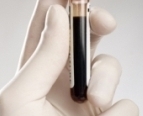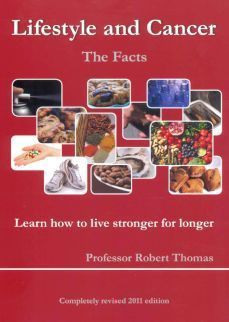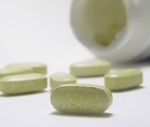Xenoestrogens
Carcinogens with female
hormone properties

|
Xenoestrogens |
|
| Carcinogens | Anti-oxidants | Lifestyle guidelines |
|
|
|
|
|||||||||||
|
What are the benefits of measuring your essential micro nutrients? |
|||||||||||
|
natureMedical®
creams Organic natural remedies medicated with pure essential oils selected for their anti - inflammatory anti oxidant and soothing properties:
|
|||||||||||
What are xenoestrogens
 These are
environmental man made chemicals which contaminate our diets every day, for the
whole of our lives. These contaminants have oestrogenic properties either
because they have chemical structure similar to oestrogen or affect the sex
hormone activity in an indirect pathway. There are concerns that they can
increase the risks of hormone sensitive benign diseases such as fibroid and
endometriosis, reduce fertility in men and cancers such as testicular cancer, breast or uterus.
There
is also a concern that they may increase the risk of relapse following treatment
for breast cancer especially if it was ER positive (sensitive to oestrogen).
These are
environmental man made chemicals which contaminate our diets every day, for the
whole of our lives. These contaminants have oestrogenic properties either
because they have chemical structure similar to oestrogen or affect the sex
hormone activity in an indirect pathway. There are concerns that they can
increase the risks of hormone sensitive benign diseases such as fibroid and
endometriosis, reduce fertility in men and cancers such as testicular cancer, breast or uterus.
There
is also a concern that they may increase the risk of relapse following treatment
for breast cancer especially if it was ER positive (sensitive to oestrogen).
Environmental sources of xenoestrogens
It is difficult to quantify our exposure to
oestrogenic pollutants - they are present in the air, what we drink, eat and put
on our skin. Some products may have small amounts and others have a great deal,
varying by class of product and brand. We may use some or them rarely but use
others every day. Here is a list of the more commonly known sources:
- Pesticides, herbicides and fertilizers
- Car pollution,
- Some deodorants, antipersperants (Aluminium)
- Shampoos and skin creams - (parabens)
- Most sun tan creams
- Polychlorinated biphenyls PCB’s,
- Fuels and car fumes
- Polycarbonate plastic bottles including some babies bottles,
- Plastic food containers,
- Plastic film
The evidence
Direct evidence that these, increasingly commonly found chemicals, directly
cause cancer or infertility is difficult to prove in humans. We certainly know
that studies in the laboratory, which added these chemicals to hormone sensitive
cancer cells grown in a petri disc make them grow and spread like wildfire. A further study in
1993 showed that rhesus monkeys developed a thickened uterus (the first stages
to develop cancer) and endometriosis after being fed food that contained dioxin,
a xenoestrogen, over a four-year period. A fact worth noting is that 70 years
ago, when the environment was free of estrogenic pollutants, there were only 21
reported cases of endometriosis versus the current 5.5 million in North America
alone.
A
report published in the International Journal of Andrology has
linked pollutant oestrogenic chemicals in mothers’ breast milk with an
increased rate of testicular cancer and genital abnormalities.
An initial concern in humans was raised following a study in 2004 from Reading University, UK, which demonstrated higher quantities of parabens in the outer part of the breast and within breast cancer cells themselves. Although a direct link with cancer is not proven it did encourage some manufacturers to remove parabens from their products, but in many items such as shower gels and shampoo they can still be seen on the label.
Aluminium salts are responsible for the
anti-sweating affect of antiperspirants. A study in 2007 from Keel University
created a lot of media activity when it showed higher quantities of aluminium in
the upper outer area of the breast in those who used antiperspirants regularly.
Aluminium has also been shown to have harmful oestrogenic properties when tested
in the laboratory and consequently comes under the classification of
metaloestrogens. Users of Aluminium based antiperspirants are understandably
concerned that the higher levels in the breast may increase the risk of cancer,
although this has not been proven in a study, which would be very difficult to
design. Nevertheless, breast cancer specialists also have concerns over
oestrogenic chemicals within cosmetics. In the prestigious San
Antonio Breast Cancer Symposium a presentation reported the finding that widely
available moisturizers contain parabens and other chemicals which mimic oestriol
or estrone, two powerful oestrogen-like compounds that could increase breast
cancer risk if absorbed through the skin. They concluded that women with breast
cancer should forgo using topical moisturizers, shampoos and shower gels that
contain parabens or other oestrogenic preservative, as there is a chance that
they may interfere with their treatment and increase the long term risk of
relapse.
General tips to avoid xenoestrogens in our diet
It is difficult to avoid these chemicals in a modern
environment and as they are ingested or absorbed through the skin in small quantities over long periods of
time. As you can see from the list above, xenoestrogens are around us all day
long - all we can do is reduce the exposure - it will be impossible in modern
society to eliminate them altogether. A chapter entitled "avoid carcinogens
can be downloaded free from the
book Lifestyle after cancer - the facts which will
provide detailed information and advice but here is a summary of some
simple tips which will help reduce your exposure:
- Buy a good salad spinner – soak lettuce leaves and herbs in water, thoroughly then spin them dry before eating.
- Wash fruit before put them onto the fruit bowel.
- Wash vegetables first and change the water before cooking.
- Avoid reusing plastic bottles
- Use glass bottles where possible
- Avoid heating food in plastic containers
- Avoid wrapping food in plastic film for long periods of time
- Store plastic mineral water bottles in a cool dark place.
- Use less deodorants / antiperspirants - alternate brands to avoid exposure to the same chemical and try to have days without them
- Avoid skin creams which have oestrogenic preservatives such as parabens.
- Use lip/nail creams such as natureMedical which have no hydrocarbons or preservatives
- Buy organic if possible.
Other good reasons to consider buying organic foods:
|
Helpful resources and links |
 Cancernet-UK:
What
is cancer; About
specific cancers;
Breast |
Prostate |
Bowel. About
cancer
treatments; Chemotherapy
|
Radiotherapy |
Hormones | Biological
agents | Complementary.
Lifestyle
advice;
Exercise | Diet |
Smoking | Sunbathing
| Alcohol. Cope
with symptoms; Traveling
| Insurance | Tests
for cancer | Clinical trials. ...site
map Cancernet-UK:
What
is cancer; About
specific cancers;
Breast |
Prostate |
Bowel. About
cancer
treatments; Chemotherapy
|
Radiotherapy |
Hormones | Biological
agents | Complementary.
Lifestyle
advice;
Exercise | Diet |
Smoking | Sunbathing
| Alcohol. Cope
with symptoms; Traveling
| Insurance | Tests
for cancer | Clinical trials. ...site
map |
 Micro-nutrient
testing Empower yourself to make dietary
choices specific to your personal make up. This Cancer Risk Nutritional
Profile, analyses your blood profile and recommends specific dietary and
supplement advice to ensure you have the best possible nutritional
status to fight cancer an aid recovery from treatments....read
more Micro-nutrient
testing Empower yourself to make dietary
choices specific to your personal make up. This Cancer Risk Nutritional
Profile, analyses your blood profile and recommends specific dietary and
supplement advice to ensure you have the best possible nutritional
status to fight cancer an aid recovery from treatments....read
more |
 Download
a free chapter describing how to avoid cancer forming chemicals
(Carcinogens) in our
diet and environments from the new edition of the best selling evidence
based book "Lifestyle
after Cancer - the facts" Download
a free chapter describing how to avoid cancer forming chemicals
(Carcinogens) in our
diet and environments from the new edition of the best selling evidence
based book "Lifestyle
after Cancer - the facts"
|
  Lifestyle
and cancer - the facts.
This 2011, edition with a foreword
from Paula Radcliffe has been extensively re-written with
evidence from the latest research from around the world which
demonstrates how diet, exercise and lifestyle changes can; help avoid
cancer (read
chapter 9 free), cope with treatments side
effects; slow the rate of progression of cancer and help prevent
relapse. This comprehensive essential
lifestyle guidebook can be ordered
online (£8.95), or downloaded via
kindle Lifestyle
and cancer - the facts.
This 2011, edition with a foreword
from Paula Radcliffe has been extensively re-written with
evidence from the latest research from around the world which
demonstrates how diet, exercise and lifestyle changes can; help avoid
cancer (read
chapter 9 free), cope with treatments side
effects; slow the rate of progression of cancer and help prevent
relapse. This comprehensive essential
lifestyle guidebook can be ordered
online (£8.95), or downloaded via
kindle |
 Keep-healthy.com
Practical evidence based advice on healthy living including ways to
naturally reduce cholesterol, reduce blood pressure, keep healthy
eyesight, hearing, maintain a healthy
weight and level of fitness. Includes advice on supplements and other
useful products...link Keep-healthy.com
Practical evidence based advice on healthy living including ways to
naturally reduce cholesterol, reduce blood pressure, keep healthy
eyesight, hearing, maintain a healthy
weight and level of fitness. Includes advice on supplements and other
useful products...link |